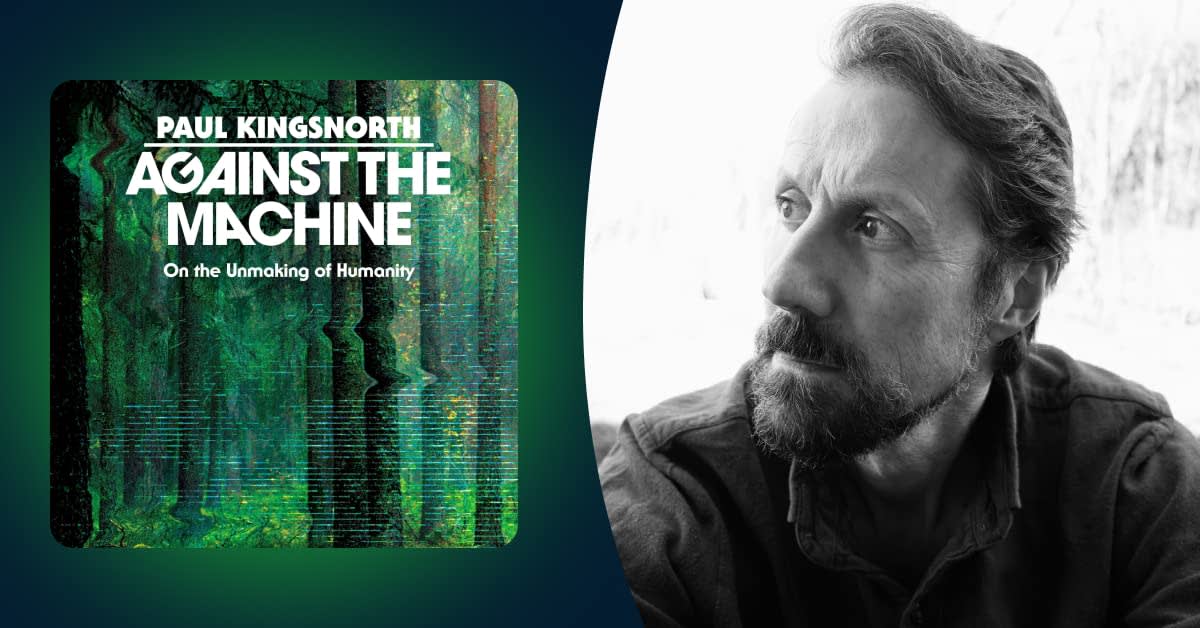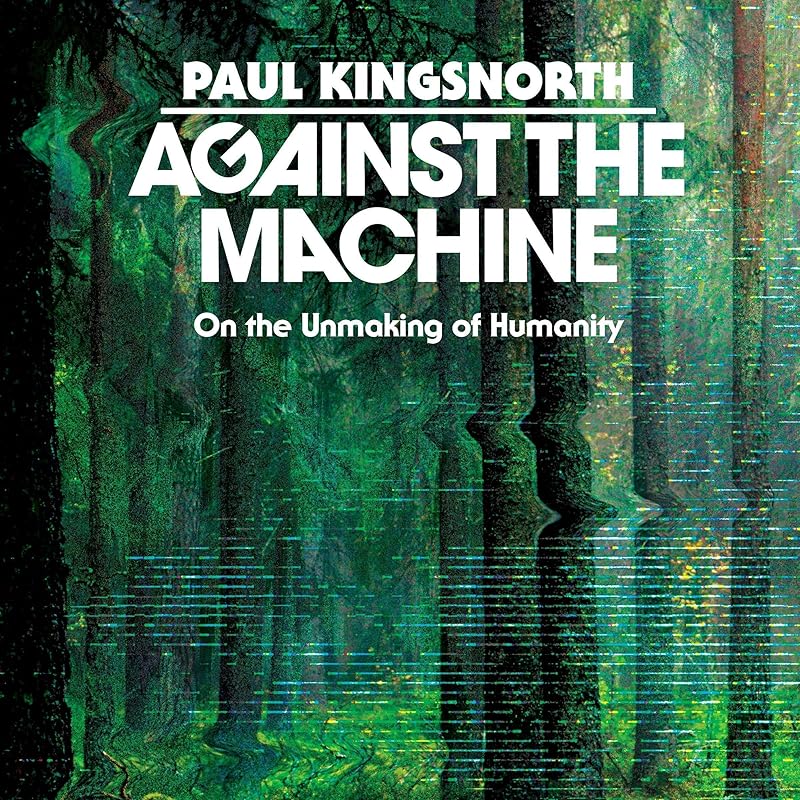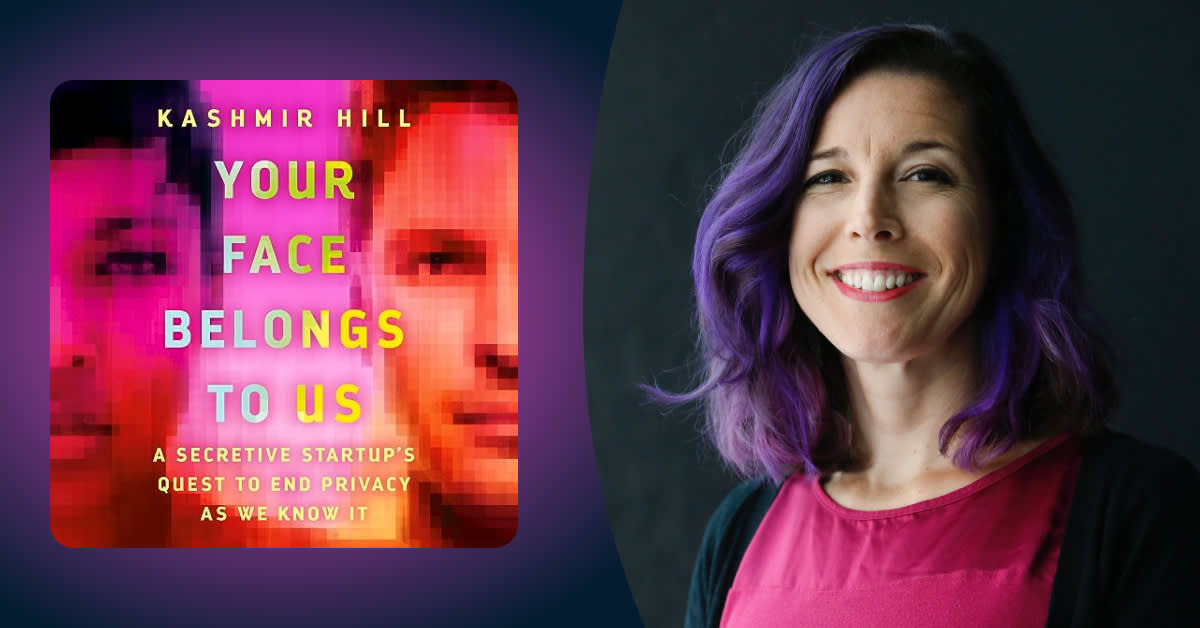Sometime in the past decade and change, the unreserved embrace of relentless innovation in digital, social, and mobile technologies turned sour. As the prescience of works like Jaron Lanier's Ten Arguments for Deleting Your Social Media Accounts and Shoshana Zuboff's The Age of Surveillance Capitalism blazed a trail for current bestsellers such as Jonathan Haidt's The Anxious Generation and Sarah Wynn-Williams's Careless People, it's become abundantly clear to anyone paying attention that the vibe has shifted.
Someone who has been paying deep attention, and for longer than most, is the English writer Paul Kingsnorth. A former deputy editor of The Ecologist and a cofounder of the Dark Mountain Project, Kingsnorth is also a writer of critically acclaimed historical fiction, including his Booker-shortlisted novel The Wake. His highly anticipated new work of nonfiction, Against the Machine—narrated in audio by Sebastian Humphreys—addresses our growing sense of collective unease with the rise of what Kingsnorth calls “the Machine,” which increasingly feels like the key challenge of our time. In this interview, Kingsnorth graciously answered my questions about the book, his own relationship to technology, and refreshingly simple solutions to our current predicament.
Kat Johnson: Congratulations on your new book, which is built around a series of essays you published on Substack about the deep spiritual and cultural crises forged by the forces of techno-capitalism. How did you begin to get your arms around this as a topic, name it, and develop it as a book?
Paul Kingsnorth: This book is the culmination of 30 years of writing and thinking about this force and what it is doing to our culture. What I call “the Machine” is both a way of seeing and the culture that grows from it. Most obviously, we see it in the encroachment of digital technologies into every area of our lives, and the control systems that grow from them. More broadly, it is an attitude that sees people and the natural world as replaceable parts in a giant mechanism. Ultimately, it is a threat to our embodied humanity. The rise and triumph of the Machine is becoming increasingly obvious in the 2020s, so the moment seemed right for a book about it.
With roots in radical environmentalism, anarchy, Orthodox Christianity, poetry, and historical fiction, your work contains myriad influences. How do they come together in Against the Machine, and how do you see this book in the context of your other work?
I think that all my writing, in one way or another, has been about, or at least has touched on this “Machine”—sometimes explicitly, sometimes in ways more hidden. All of the various influences you mention, and the different avenues I have been down on my journey of exploration, are all attempts to get my head around what is happening to the world, and to work out why I don’t like it. This book, I would like to think, is my final and fullest word on this subject. I have tried to explain what this thing is, where it came from, how it manifests now, and how I think it might be lived through.
“Smartphones, for example, or AI, do not just perform a task for us—in some way they make us into their task instead. They have a direction of travel, and they drag us in its wake.”
What is your own approach to modern technology? You have a popular Substack newsletter and YouTube channel, for example, that allow you to disseminate your work more broadly. What kinds of boundaries do you draw around personal technology? And do you have any guiding principles you might share?
Dependency on technology, and especially digital technology, is increasingly built into our lives, and it becomes harder each year to avoid it. “Technology” is an age-old force—there is nothing new about humans creating tools to help them work—but the kind of technologies we live within now are qualitatively different, it seems to me. Smartphones, for example, or AI, do not just perform a task for us—in some way they make us into their task instead. They have a direction of travel, and they drag us in its wake. In this sense, the challenge for us is to ask what each technology wants from us, and to examine each new machine and ask, “Does this improve my life, or make it worse?”
My approach is to draw lines based on these questions. There are certainly technologies I don’t have and will never have. I will not, for example, ever use an AI—at least consciously. The question, though, is how much longer I will have the choice.
Do you have a gut impulse as to how humanity might emerge from the Machine age, or perhaps a best-case scenario of what kind of outcome we should hope for? And do you have any practical tips to share on how we might live with more humanity, intention, and spirituality in the present?
My gut impulse is that, in the end, the Machine will collapse in on itself, like a latter-day Tower of Babel, because it is unsustainable in every sense. Economically I don’t think an AI-powered world can support the number of people who need work and meaning. Ecologically, the amount of electricity it is already using is phenomenal and growing. And spiritually, I think we can’t survive the sheer fakeness and hysteria and overstimulation for much longer.
In the meantime, we need to draw those lines, question every new technological development, and spend our time doing actually human things: spending time with others with no screens in sight, walking in the wilds, reading books, praying, paying attention. Just being human in an un-augmented way.
For fans of your work, what other authors or books would you point them to for further reading or listening on this subject—or just something cool you’ve read or listened to lately that you’d like to share!
Other than Against The Machine, my essay collection Confessions of a Recovering Environmentalist contains a fair bit of material on how to live in the age of the machine. If you’d prefer a fictional treatment, my novel Alexandria, set a thousand years in the future, details the struggles of different human communities in a post-collapse age in which an all-seeing AI offers everyone escape from their own bodies. If you want something older, just read Brave New World. We’re now basically living in it!





